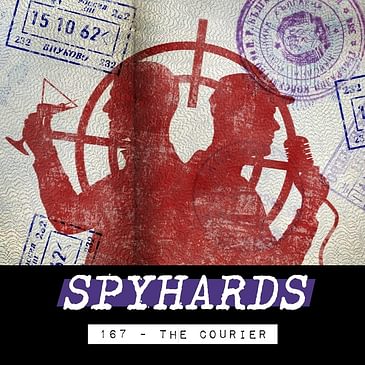Agents Scott and Cam, along with guest operative Ian Sanders of the Cold War Conversations Podcast, bond over trips to the ballet while reviewing the 2020 Benedict Cumberbatch espionage drama The Courier.
Directed by Dominic Cooke. Starring Benedict Cumberbatch, Merab Ninidze, Rachel Brosnahan, Jessie Buckley, Angus Wright and Kirill Pirogov..
The Cold War Conversations Podcast is available everywhere. Don't forget to check out Ian's episode on Oleg Penkovsky.
You can also follow Ian on Twitter.
Become a SpyHards Patron and gain access to top secret "Agents in the Field" bonus episodes, movie commentaries and more!
Purchase the latest exclusive SpyHards merch at Redbubble.
Social media: @spyhards
View the NOC List and the Disavowed List at Letterboxd.com/spyhards
Podcast artwork by Hannah Hughes.
Theme music by Doug Astley.



